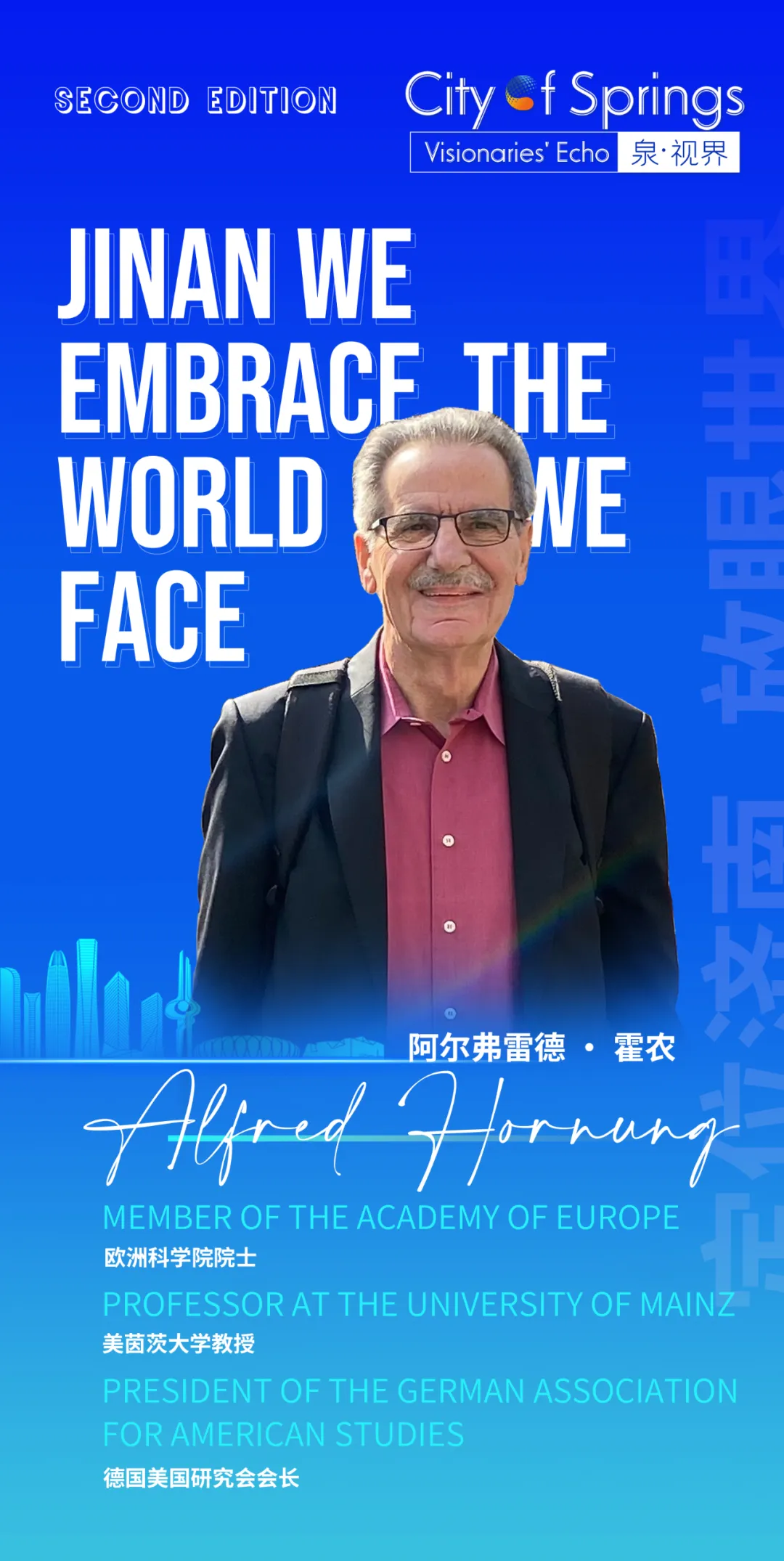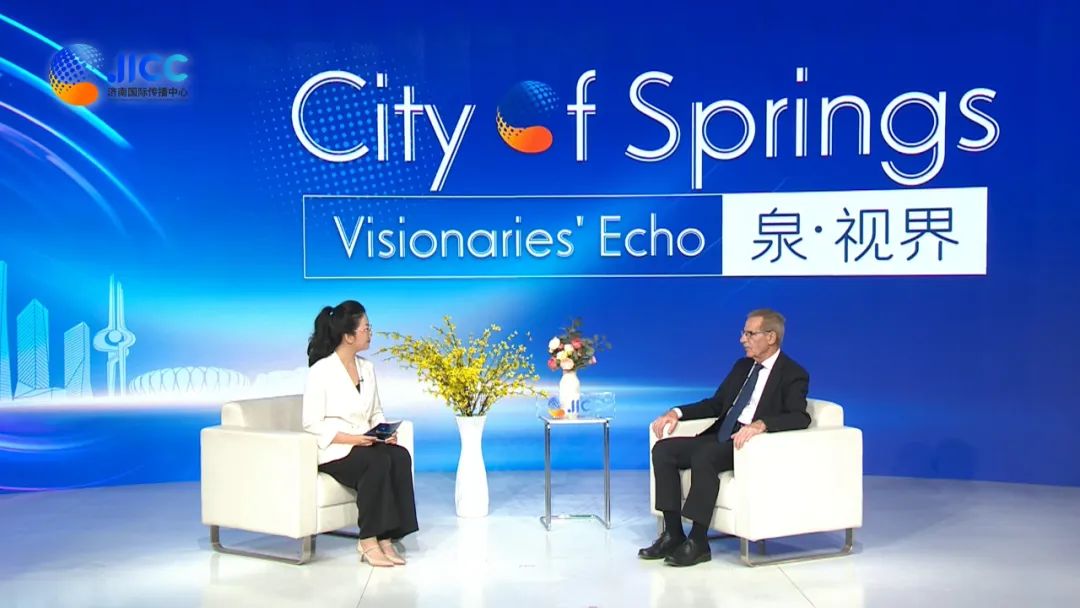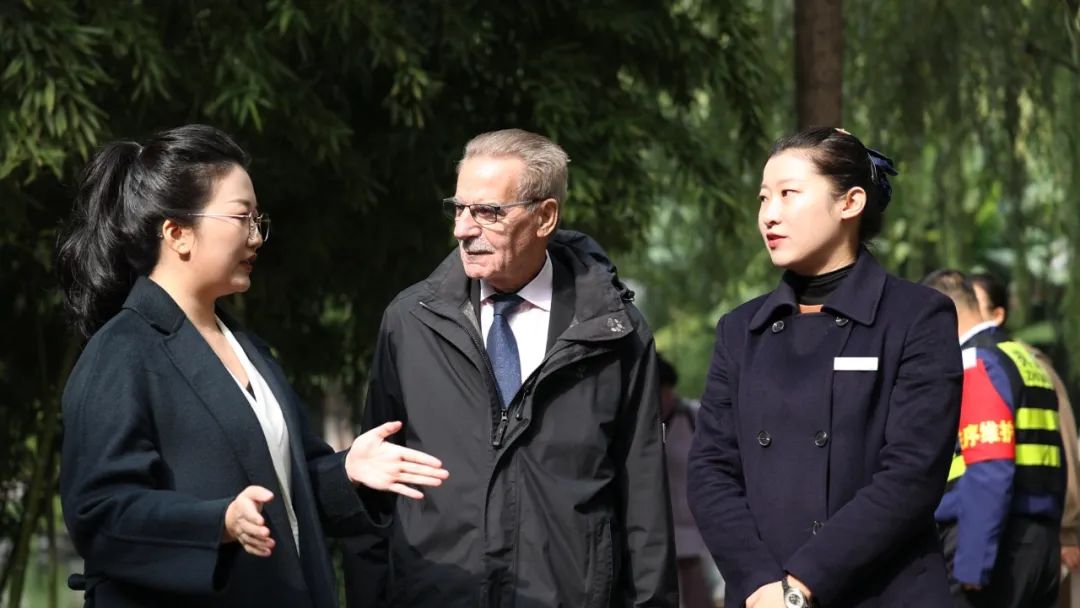
Under the guidance of the Publicity Department of the CPC Jinan Municipal Committee, Jinan International Communication Center has meticulously planned and launched the high-end bilingual interview series City of Springs | Visionaries’ Echo. This series aims to establish a platform for high-level dialogue, inviting iconic figures from around the world to engage in in-depth discussions on global hot topics, the changes of the times, and Jinan’s future development, with the goal of achieving the vision of “exploring Jinan with a global perspective”.

As a cherished gem of traditional Chinese culture, Confucianism has endured for millennia and continues to radiate its unique brilliance in modern society. From Nishan in Qufu to various corners of the world, the influence of Confucian thought is omnipresent. But when did the West begin to understand and embrace Confucius? What significant impact has Chinese civilization, represented by Confucian thought, had on the global cultural landscape? In this episode, Professor Michel Honhon, a member of the European Academy of Sciences, shares insights from his research, illustrating how Confucianism continues to shine in its global journey.
Reflecting on his first encounter with Confucian culture, Professor Honhon recalled that “Confucius” and “Confucian thought” were initially mere footnotes in his research paper — something he never expected would later become the central focus of his studies. As his research deepened, he realized that Eastern values offer something absent in Western thought, and that combining Eastern and Western perspectives is key to generating new ideas.

The West’s growing interest in China has provided Western scholars with a new foundation of knowledge. Professor Honhon explained that the earliest Western-language version of Confucius’ Analects was published in Paris in 1687, titled Confucius Sinarum Philosophus (Confucius, the Philosopher of the Chinese), presenting the wisdom of the Chinese people in Latin. After reading this translation, the renowned German philosopher, diplomat, and mathematician Gottfried Wilhelm Leibniz wrote Novissima Sinica (The Latest News from China), where he offered extraordinary insights. First, Leibniz emphasized the equal importance of theory and practice, advocating for their integration to achieve a comprehensive and scientific understanding. Second, he proposed that Chinese should be considered a global language due to its universal potential. Third, he argued that Europeans should learn from China, advocating for pragmatic exchanges between the West and China.
From a world history perspective, the publication of this translation had profound significance in two key ways. In France, under the influence of Confucian ideas, French culture shifted from being dominated by religion to a more secular and pragmatic approach. Additionally, the book provided philosophical support for Louis XIV’s transformation of his overseas missions.

For a long time, Europe championed Eurocentrism, viewing the European perspective as the sole standard for evaluating and understanding the world. The dissemination of Confucius' ideas and teachings in Europe became a crucial force in enriching and revising European philosophy and thought.“ For example, during the French Enlightenment, philosophers such as Voltaire were enthusiastic supporters of Confucian thought. Similarly, Benjamin Franklin, an influential American statesman, first encountered Confucius’ writings at the age of 18. A decade later, he published two articles in the Pennsylvania Gazette, where he meticulously described the main principles of Confucian philosophy. These writings provided a model for behavioral norms and governance in the American colonies, as well as a reference for constructing a new social order and governance model.

As Confucian culture continued to spread and influence Western academia, an increasing number of Westerners developed an interest in China, an ancient and mysterious land. Professor Honhon believes that Confucian philosophy brought the Chinese context into a more multicultural global environment, prompting Western nations — particularly the United States — to turn their gaze towards China. In fact, since 1687, the United States ceased trade with Europe and initiated trade with China. “It is commonly believed that Benjamin Franklin invented a winter heating stove,” Professor Honhon noted, “but we now know that he was merely replicating a Chinese stove. We also know he was fascinated by the Great Wall of China, seeing it as a defensive structure and even proposed building a similar wall in Philadelphia to protect the colonies from Native American attacks. Unexpectedly, these ideas trace back to influences from China.”
Production Team:
Planning: Liu Qintao, Hou Yawen
Host: Kuang Qiongqiong
Script: Yuan Yuhua
Translation/Proofreading: An Shuo, Kuang Qiongqiong, Hua Shan
Director/Filming: An Shuo, Li Jinyang, Lei Youting, Gao Yuan
Technical Support: Ren Xianan
Post-Production: Lan Chuanxin
Design: Niu Qingchun, Yu Hong